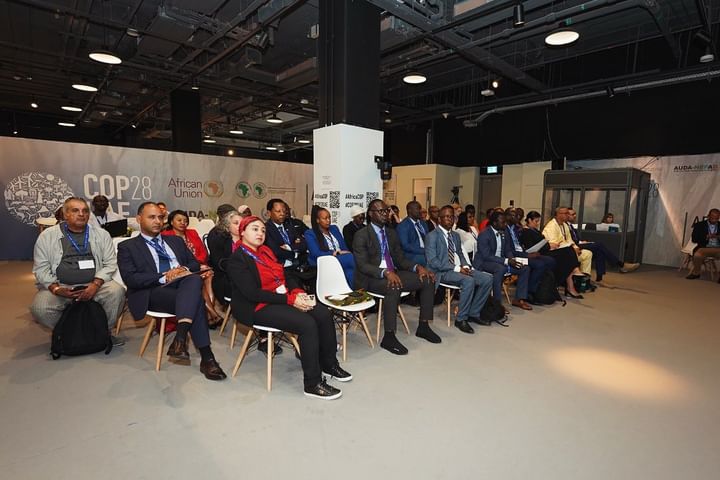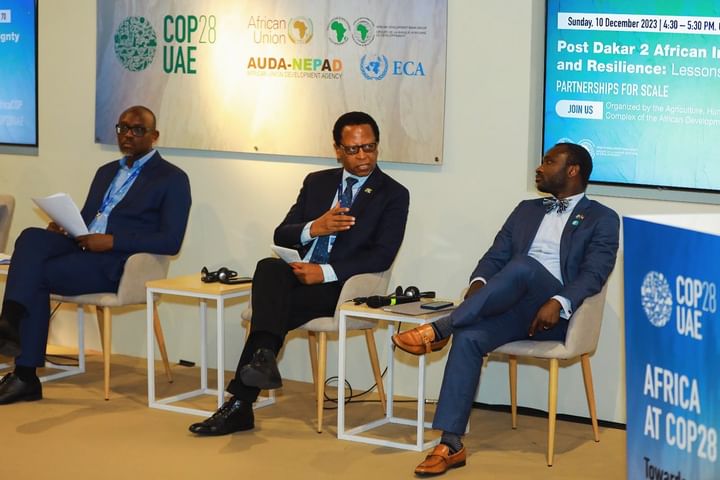Dar es Salaam. The African Development Bank (AfDB) hosted a side event titled “Post Dakar 2 African Initiatives for Food Sovereignty and Resilience: Lessons Learned and Perspectives,” shedding light on Tanzania’s strides in agricultural development.
The Southern Agricultural Growth Corridor of Tanzania (SAGCOT) CEO, Geofrey Kirenga, took the stage to emphasize the pivotal role of Tanzania’s commitment and leadership in propelling agricultural progress.
During the side event at the 28th Conference of Member States of the United Nations Convention on Climate Change (UNFCCC-COP28) held in Dubai, United Arab Emirates, Mr Kirenga, representing Minister for Agriculture Hussein Bashe, took the opportunity to discuss the significant outcomes of the Dakar 2 conference.
With a focus on Tanzania’s commitment to bolstering food production and resilience in the face of climate change, Mr Kirenga emphasized the nation’s unwavering dedication and determination. He highlighted these attributes as pivotal driving forces behind Tanzania’s success in diverse agricultural endeavors.
This commitment to sustainability and adaptability underscores Tanzania’s role in contributing to global efforts to address climate change and secure food security in the long term.
“There are implementations of irrigation initiatives tailored for small-scale farmers. These projects aim to ensure a sustainable supply of water for agriculture, a crucial factor in boosting productivity,” he said.
Additionally, Mr. Kirenga probed into the “Build a Better Tomorrow” (BBT) youth program, which has not only been successfully piloted in diverse sectors within Tanzania but has also been extended to neighboring countries.
According to him, the BBT program in Tanzania stands as a transformative initiative. Focused on youth engagement, it showcases sustainable practices, fostering resilience and innovation. Its impact resonates beyond borders, contributing to regional development and collaboration.
Manager for Agricultural Research, Production, and Sustainability Division of the AfDB Bank, Dr. Laouali Garba, gives a valuable perspective on the importance of agricultural adaptation for small-scale farmers while emphasizing the need for sustainable land management practices that can withstand the challenges posed by climate change.
Dr. Garba also highlighted the significance of addressing post-Dakar summit implementation procedures within the respective countries.

“The event provided a platform for speakers to discuss the extra funding required to advance African food systems while concurrently tackling climate change. The emphasis was on the crucial role of effective implementation procedures and the impact they can have on securing additional support,” he said.
In a broader context, the African Development Bank and its representatives are actively participating in the COP28 UAE conference in Expo City Dubai, which commenced on November 30, 2023, and is scheduled to conclude on December 12, 2023.
This involvement underscores the bank’s commitment to addressing global challenges related to climate change and sustainability.
As the event unfolded, it became evident that Tanzania’s agricultural successes serve as an inspiring model for other African nations, showcasing the transformative power of strategic initiatives and dedicated leadership in the pursuit of food sovereignty and resilience.
This story was produced with support from MESHA and the IDRC Eastern and Southern Africa office.


